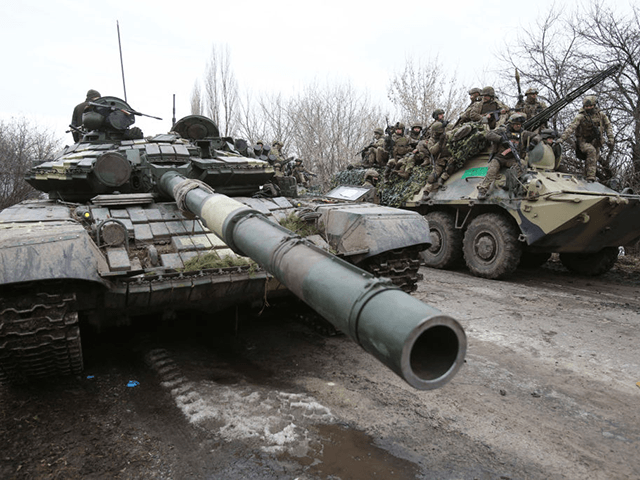ROME — Vatican Secretary of State Cardinal Pietro Parolin has recognized the legitimacy of recourse to arms to repel an unjust aggressor such as in the case of Ukraine in an apparent contradiction of Pope Francis’ rejection of Catholic “just war” doctrine.
“The use of weapons is never something desirable, because it always carries a very high risk of taking the life of people or causing serious injury and terrible material damage,” Cardinal Parolin told the Spanish Catholic weekly Vida Nueva when asked whether European nations should be sending weapons to Ukraine.
“Nonetheless, the right to defend one’s life, one’s people and one’s country sometimes also involves the sad recourse to arms,” the cardinal recognized. “At the same time both sides must refrain from the use of prohibited weapons and fully respect international humanitarian law to protect civilians and non-combatants.”
“On the other hand, although military aid to Ukraine may be understandable, the search for a negotiated solution, which silences weapons and prevents a nuclear escalation, remains a priority,” Parolin added.
On Friday, Pope Francis ruled out the possibility of “just wars,” saying they do not exist.
“There is no such thing as a just war: they do not exist!” Francis told participants in an international conference gathered in the Vatican.
Earlier in the week, the pontiff similarly told Moscow Patriarch Kirill that wars are always unjust.
“At one time there was talk in our Churches of holy war or just war,” Francis said. “Today we cannot speak like that. The Christian awareness of the importance of peace has developed.”
“Wars are always unjust,” he said, “because those who pay are the people of God. Our hearts cannot fail to weep in front of the children, the women killed, all the victims of war.”

Ukrainian servicemen get ready to repel an attack in Ukraine’s Lugansk region on February 24, 2022.(ANATOLII STEPANOV/AFP via Getty Images)
In its explanation of “just war doctrine,” the Catechism of the Catholic Church, a compendium of Catholic belief, lays out a series of conditions necessary to justify the use of military force, summing up the teachings proposed by Saint Augustine and Saint Thomas Aquinas.
It states that “the damage inflicted by the aggressor on the nation or community of nations must be lasting, grave, and certain; all other means of putting an end to it must have been shown to be impractical or ineffective; there must be serious prospects of success; the use of arms must not produce evils and disorders graver than the evil to be eliminated.”

COMMENTS
Please let us know if you're having issues with commenting.